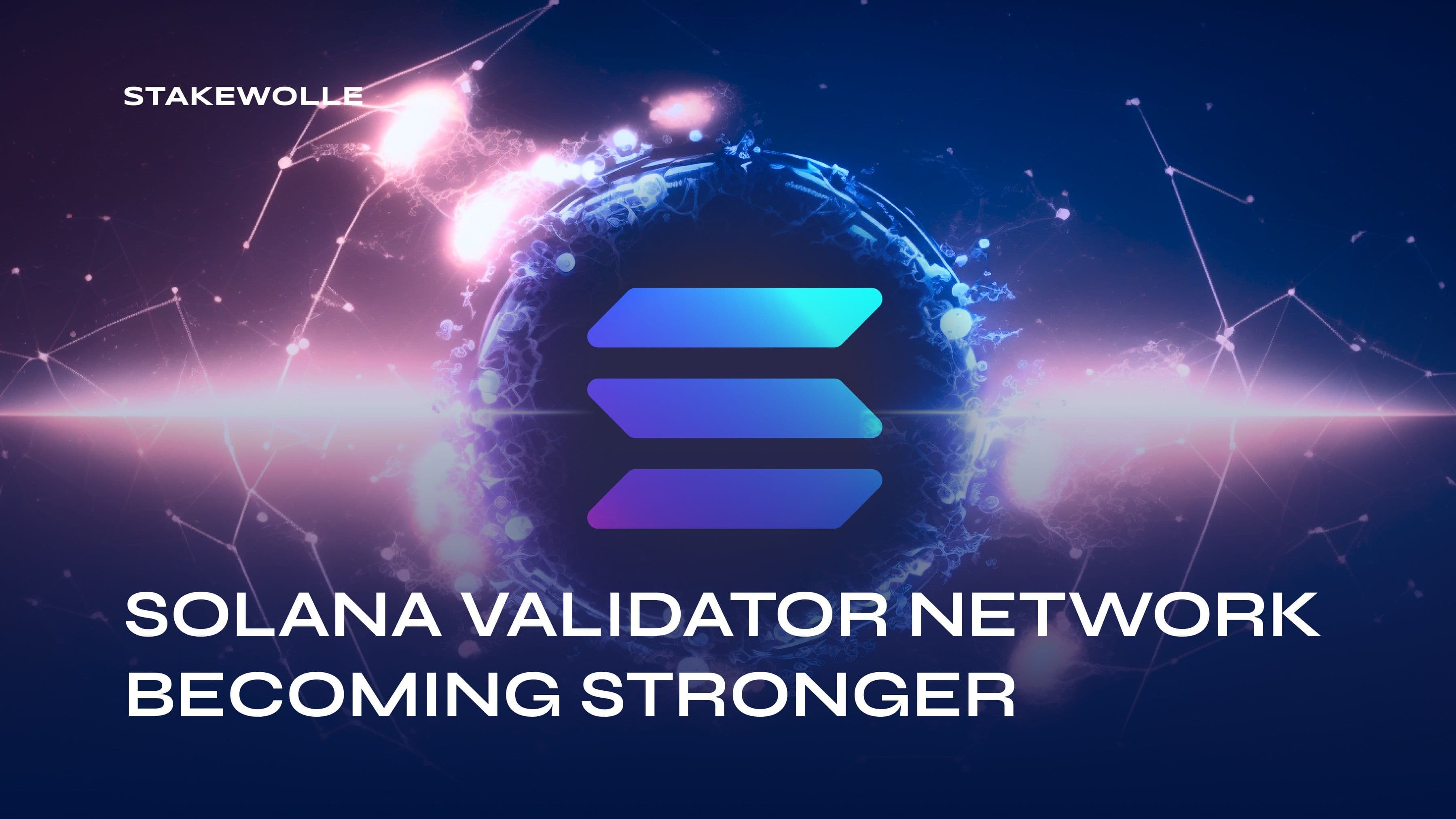Solana validator network becoming stronger
23 Mar 2023
2 min read

One of the largest proof-of-stake networks, Solana is increasingly becoming more resilient against attacks.
According to the Solana Nakamoto Coefficient, the number of nodes, their distribution, and diversity, the Solana network is thriving. Together, this makes the Solana network one of the largest and most distributed in the crypto ecosystem.
In the Validator Health Report for 2023, which was just released, the Solana Foundation describes how its methods for assessing the well-being of its validators have changed over time.
According to the report, a network's quality, not just its quantity of nodes, determines how healthy it is. In spite of still experiencing some recurrent network challenges, the study presents a recent example of how the network maintained its resiliency in the face of an unplanned termination of service.
The report claims that having more validators on a network increases its resilience. Consensus Nodes and RPC Nodes are the two categories of validators in the Solana network. 2,400 of the 3,400 validators in Solana are consensus nodes. In comparison to most other PoS blockchains, this number is higher.
The Nakamoto Coefficient is widely considered to be a good way of measuring a blockchain’s resilience to attack.
The Solana Nakamoto Coefficient is reported as 31, which suggests that 31 validators would be the minimum number that might cooperate to seize control of the network.
There was only one validator client for Solana up until recently, created by Solana Labs. In contrast, Jito Labs unveiled a new validator client in August of the previous year.
Jump Crypto also started developing their Firedancer validator client, which is entirely constructed in C++ and has a theoretical throughput of one million tps.
Concentration of data centers. As was demonstrated when the Hetzner server provider opted to block Solana nodes, using private data centers entails some risk. This ultimately resulted in a 20% denial of service on the network and caused the Solana Foundation to give its share in Solana serious consideration.
No autonomous system has anywhere close to the 33.3% of the Solana Stake required to attack the network, which is distributed evenly across all ASNs (Autonomous System Numbers).
The same holds true in terms of location. With 23.5% of the overall stake, the US is the nation with the most of it. Second place with 13.2% is Germany. There are other additional nations with varied stake percentages, thus no one nation possesses the 33.3% required to shut down the network.